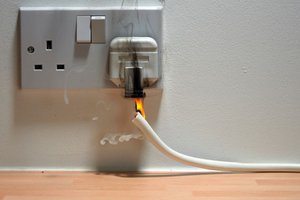Why you need to pay attention to electrical socket safety
They say familiarity breeds contempt. While that might not be true when it comes to using sockets safely, familiarity certainly can lead to an excessively casual attitude towards them. It’s a worrying fact that some people expose themselves and others to danger and potentially fatal situations simply through careless use and a lack of appreciation of the fire risk. So here are a few reminders about how you and those around you can minimise that risk.
Use the right fuse
Using the right fuse matters because it’s a safety device that ‘blows’ and cuts off electricity if the appliance develops a problem. That stops overheating which otherwise could cause a fire. If you’re using the wrong fuse, it won’t blow. Check the manufacturer’s instructions or look for the sticker on the appliance to see which fuse you need.
Be cautious with extension leads
Never overload sockets. Plugging too many electrical appliances into one socket can lead to overheating and fire.
That means the risk is likely to be at its highest when extension leads are being used because it’s very easy to overload them – even with just 2 appliances. In fact, some appliances (like washing machines and dishwashers) use so much electricity that it’s unwise to connect them via an extension lead if at all avoidable and they should never be used at the same time on the same socket.
- Is an extension lead really necessary?
- Know its rating
- Never combine extension leads
- Use bar extension leads
- Unwind the extension lead
- A burning smell – particularly one similar to burning rubber, plastic or metal.
- Hot plugs or sockets.
- Any sootiness, dark patches or blackened scorch marks around the socket.
- Sparks or smoke when you’re removing or inserting a plug.
- Fuses that blow frequently or circuit-breakers that trigger for no obvious reason.
